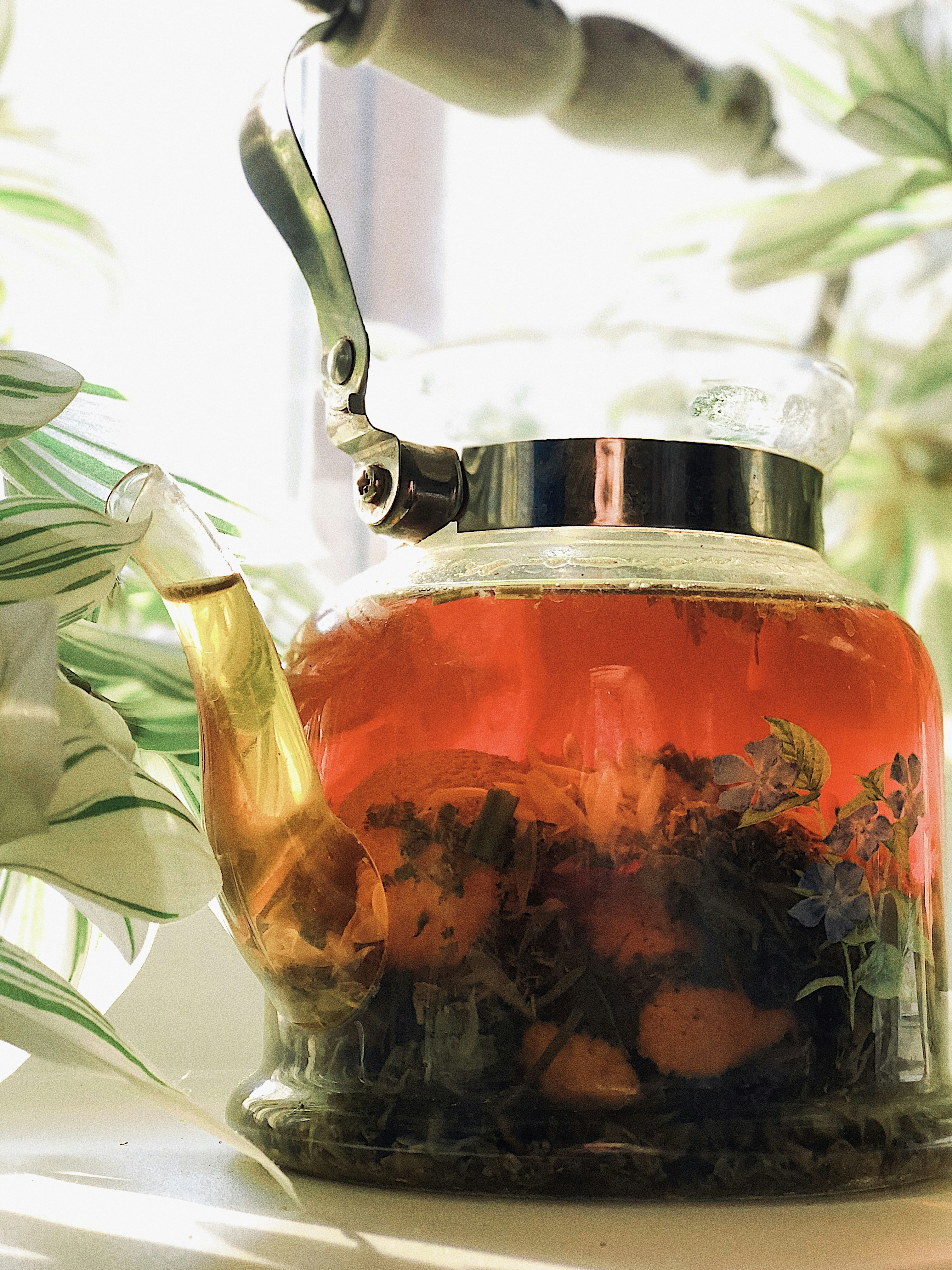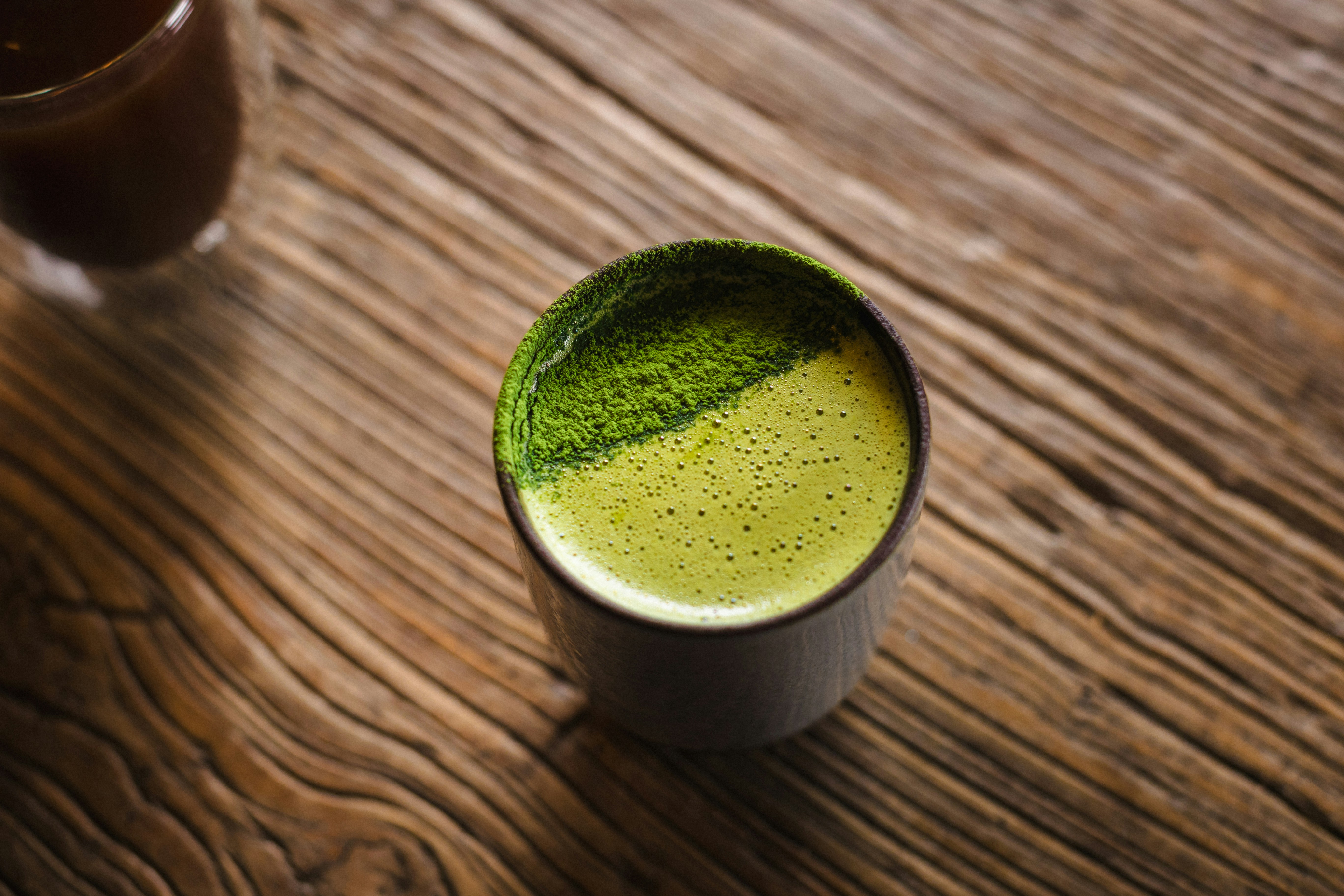Introduction: The Cherished Cup
Tea, a beverage enjoyed by millions around the globe, transcends mere hydration; it is often viewed as a cherished ritual that fosters connection, reflection, and wellness. For many individuals, the act of brewing a cup of tea signifies a moment of pause—a break from the hustle of daily life where one can gather thoughts or share fond moments with friends and family. This intimate relationship with tea, steeped in culture and tradition, acts as a reminder of the soothing power that such simple practices can hold in our increasingly chaotic lifestyles.
The history of tea spans centuries and continents, evolving from a medicinal drink in ancient China to a symbol of hospitality across cultures. This beverage has undergone a remarkable transformation as it integrates into various societies, giving rise to diverse practices that celebrate its significance. Whether it is the afternoon tea tradition in Britain or the elaborate tea ceremonies in Japan, tea continues to play a pivotal role in rituals that emphasize socialization and community, suggesting that its benefits extend beyond the cup itself.
As the global interest in tea continues to surge, with a notable increase in specialty shops and wellness brands, it becomes essential to explore the myriad health benefits associated with this beloved beverage. From its rich array of antioxidants to its potential to enhance mental clarity, tea serves not only to refresh but also to nourish the body and soul. This blog post aims to delve into the lesser-known health advantages of tea, recognizing it as a pillar of wellness that deepens our connection to ourselves and others. The journey through the various types of tea and their respective benefits will reveal why tea is truly much more than just a comforting cup.
A Brief History of Tea: From Ancient Remedies to Modern Favorites
The origins of tea can be traced back to ancient China, where it is believed to have been discovered accidentally by Emperor Shen Nong around 2737 BCE. According to legend, leaves from the Camellia sinensis plant fell into a pot of boiling water he was preparing. The resulting beverage quickly garnered attention for its invigorating properties and soon became a staple in Chinese culture. Throughout the centuries, tea transitioned from a medicinal drink to a celebrated social activity, deeply rooted in Chinese traditions.
During the Tang Dynasty (618-907 AD), tea gained prominence as a popular beverage, and it was during this period that the first tea ceremonies were established. These rituals emphasized the importance of the tea-drinking experience, focusing on the quality of the leaves, the preparation methods, and the serene environment in which tea was consumed. This era laid the groundwork for the culture of tea that exists in various forms today.
Tea’s journey expanded beyond China as it reached Japan, Korea, and eventually, the rest of the world. In Japan, the introduction of tea led to the development of the Japanese tea ceremony, which emphasizes mindfulness and appreciation for nature. Meanwhile, in Europe, tea emerged as a status symbol in the 17th century, predominantly consumed by the elite. The British adopted tea drinking as a social custom, leading to the establishment of afternoon tea, a tradition that persists in modern society.
Across cultures, tea has been revered for its therapeutic benefits. Ancient herbalists indicated that certain teas could alleviate illness, enhance digestion, and promote relaxation. This herbal wisdom has been carried into the contemporary era, where teas such as chamomile, green, and ginger are celebrated not only for their flavors but also for their health advantages. Today, tea is consumed worldwide in myriad forms, reflecting a rich tapestry of cultural significance and historical appreciation.
The Science of Tea: Nutrients and Compounds for Health
Tea, derived from the Camellia sinensis plant, is cherished not only for its rich flavors but also for its profound health benefits. The consumption of tea has been linked to a variety of health advantages, largely attributable to its unique nutrient profile, which includes antioxidants, polyphenols, vitamins, and minerals.
One of the key components of tea is antioxidants, notably catechins and flavonoids. These compounds are well-known for their ability to neutralize free radicals in the body, thus mitigating oxidative stress. Scientific studies indicate that regular consumption of tea can lead to reduced risk factors associated with chronic diseases, such as cardiovascular disease and some forms of cancer. For instance, green tea is particularly rich in epigallocatechin gallate (EGCG), a potent catechin that has been evidenced to lower blood pressure and improve cholesterol levels.
Furthermore, tea is abundant in polyphenols, which have been shown to contribute to improved gut health. These compounds boost the proliferation of beneficial gut bacteria, enhancing digestion and promoting a balanced microbiome. Black tea, being fermented, contains different polyphenols than green tea, yet both types offer significant health benefits that contribute to overall wellness.
Additionally, vitamins such as vitamin C and some B vitamins found in specific teas add to their nutritional value. Vitamin C, in particular, not only aids in immunity but also enhances the absorption of iron from plant-based foods—a vital aspect for those on a vegetarian diet. The misconception that tea can deplete nutrients is unfounded; rather, it complements nutritional intake when consumed as part of a balanced diet.
The unique interplay of these nutritional compounds demonstrates the potency of tea as a health-promoting beverage. With ongoing research, the depth of tea’s beneficial properties continues to unfold, revealing its role as a cornerstone of a healthy lifestyle.
Emotional Well-Being: Tea as a Source of Comfort
Tea, with its diverse range of flavors and aromas, has long been cherished for its soothing properties. The act of brewing a cup of tea often serves as a moment of mindfulness, providing individuals an opportunity to pause amidst their busy lives. Many people have reported that the simple ritual of preparing and enjoying tea can lead to relaxation and a sense of emotional stability. This leaves a positive imprint on mental well-being.
One common aspect of tea drinking is its ability to act as a comforting ritual during times of distress. Personal anecdotes abound where individuals recount how a warm cup of tea offered solace during challenging days. For instance, a student facing the pressures of exams may find that locking away distractions to brew tea fosters a sense of calm. The fragrant steam rising from the cup may evoke feelings of nostalgia, linking the experience to comforting memories.
Moreover, certain types of tea, such as chamomile or lavender, are known for their calming properties, promoting stress reduction. Herbal teas, particularly those aimed at relaxation, can help alleviate feelings of anxiety. The gentle act of sipping tea not only serves to relax the mind but also allows for a mindful moment of self-care in a fast-paced world.
Studies have indicated that the ritual of tea consumption may lead to the release of neurotransmitters like dopamine, contributing to a feeling of happiness. The warm cup in hand often brings with it a momentary escape from the demands of daily life. Whether it’s sharing a pot of tea with friends or savoring a quiet moment alone, the emotional benefits of tea are manifold.
Ultimately, tea acts as more than just a beverage; it symbolizes comfort and tranquility. As individuals embrace this age-old tradition, many discover the profound impact tea can have on their emotional well-being, transforming not only their moments of stress but enhancing their overall quality of life.
Tea and Spiritual Practices: A Path to Mindfulness
Tea has long been revered not only for its flavor and health benefits but also for its profound association with spiritual practices and rituals. Across various cultures, the act of preparing and consuming tea serves as a conduit for mindfulness, promoting a deeper connection to oneself and the surrounding environment. Central to this practice are ceremonies that elevate tea drinking from a mere daily habit to a meditative experience.
A prime example is the Japanese tea ceremony, known as Chanoyu or Chado. This ritualistic preparation of matcha tea encapsulates harmony, respect, purity, and tranquility. Participants engage in a series of deliberate movements, turning the simple act of whisking matcha into a form of meditation. Each gesture is performed with attentiveness, inviting participants to be present and fully immersed in the moment. Such practices encourage mindfulness, fostering an awareness that extends beyond the tea to encompass the broader aspects of life.
In addition to Japanese traditions, many cultures around the world incorporate tea into spiritual practices. For instance, Chinese tea culture highlights the concept of “gongfu tea,” which also emphasizes precise movements and focused attention during tea preparation. This careful approach cultivates a sense of calm and clarity, inviting practitioners to reflect during the brewing process. Through shared experiences over tea, individuals can achieve emotional and spiritual alignment, deepening connections with others.
Furthermore, tea’s calming properties can enhance meditation practices. Herbal teas, such as chamomile or lavender, are often used to prepare the mind and body for a meditative state. The soothing effects of these beverages not only promote relaxation but can also heighten one’s capacity for mindfulness. As individuals sip their tea, they may find that they are better equipped to quiet their thoughts, facilitating a deeper connection to their inner selves through contemplative reflection.
Cultural Rituals: The Uniting Power of Tea
Tea has long served as more than just a beverage; it is a fundamental aspect of various cultural rituals that foster community and connection. In many societies around the world, the act of sharing tea transcends mere consumption and enters the realm of social interaction and bonding. For instance, in Japan, the traditional tea ceremony, known as “chanoyu,” emphasizes mindfulness and respect. This ritual invites participants to engage in meaningful dialogues while appreciating the aesthetics of the tea-making process, thereby reinforcing social cohesion.
Similarly, in the Middle East, serving tea is a gesture of hospitality, symbolizing warmth and friendship. The preparation and sharing of mint tea, for instance, often occur during gatherings, allowing families and friends to reconnect with one another. These communal tea experiences not only strengthen interpersonal relationships but also create an inclusive environment where individuals can share their stories and experiences, fostering a sense of belonging.
In many African cultures, tea drinking plays a vital role in community building. For example, in Ethiopia, the coffee ceremony, which incorporates tea, transforms into a grand event that brings families and neighbors together. This gathering serves not only to enjoy the beverage but also to share news, ideas, and cultural practices, knitting the social fabric and enriching community ties.
Across cultures, tea is a powerful uniting force, encouraging conversations that might otherwise be overlooked. The simple act of sharing a cup provides an opportunity for individuals to express emotions, discuss challenges, and celebrate achievements, thus promoting a supportive community network. The richness of these rituals highlights tea’s ability to create an experience that goes beyond taste, making it an essential component of cultural heritage and social interaction worldwide.
Types of Tea and Their Unique Benefits
Tea is not just a beverage; it encompasses a diverse range of types, each with its unique benefits. The primary categories of tea include green, black, oolong, and herbal varieties, all of which offer distinct health advantages that can enhance overall well-being.
Starting with **green tea**, this variety is renowned for its high concentration of antioxidants known as catechins. These compounds have been linked to improved brain function, fat loss, and a lowered risk of various diseases, including heart disease and cancer. Incorporating green tea into your daily routine can be as simple as enjoying a cup in the morning or using it as a base for smoothies in the afternoon.
Moving to **black tea**, which is the most commonly consumed type worldwide, it boasts a robust flavor and contains theaflavins and thearubigins. These antioxidants contribute to heart health by improving cholesterol levels and potentially lowering blood pressure. For those seeking to derive the heart-healthy effects of black tea, consider replacing sugary beverages with a cup of black tea throughout the day.
**Oolong tea** occupies a middle ground between green and black tea, known for its partially oxidized leaves. It has been shown to aid in weight management, boost metabolism, and improve mental clarity. Enjoying oolong tea during a mid-afternoon break can provide a refreshing, health-conscious alternative to coffee.
Lastly, **herbal teas**, which are technically not classified as tea from the Camellia sinensis plant, include varieties such as chamomile, peppermint, and rooibos. Each offers specific health benefits; for instance, chamomile can promote relaxation and sleep, while peppermint may aid digestion. Integrating herbal teas into your evening routine can enhance relaxation and support digestive health.
By recognizing the unique traits and benefits of different types of tea, individuals can make informed choices that align with their health goals. Incorporating a variety of teas into daily life can be a straightforward approach to enhancing wellness.
Incorporating Tea Into Your Daily Routine: Tips for a Healthier Lifestyle
Integrating tea into your daily routine can not only enhance your wellness but also elevate your lifestyle. With countless varieties offering diverse flavors and health benefits, it is essential to explore and discover new teas that complement your preferences. Start by sampling different types of tea, such as green, black, herbal, and oolong, to find the ones that resonate with your palate. Visiting a local tea shop or exploring online retailers can provide you with an array of options that may inspire your journey to wellness.
Optimal brewing methods are crucial for experiencing the full potential of your chosen tea. The ideal water temperature and steeping time can vary depending on the type of tea, impacting its flavor and health benefits. For instance, green tea thrives at a lower temperature of around 175°F (80°C) for about 2-3 minutes, while black tea requires near-boiling water at approximately 200°F (93°C) for 3-5 minutes. Utilizing a thermometer or a designated tea kettle with temperature settings can help you achieve the perfect brew each time. By mastering these techniques, you’ll maximize the enjoyment and potential health benefits that tea has to offer.
Pairing tea with meals is another effective way to enhance your daily routine. Consider how certain teas can complement the flavors of what you are eating, thus promoting better digestion and overall health. For example, green tea pairs excellently with light dishes such as salads and seafood, while robust black teas can enhance the flavors of hearty meals. Experimenting with these combinations will not only elevate your dining experience but also help you to discover which pairs work best for your tastes and health goals.
Embracing the practice of enjoying tea throughout your day, whether in the morning or as an afternoon ritual, can be a simple yet profound way to improve your lifestyle. Incorporating tea into your daily routine encourages mindfulness and fosters a moment of relaxation amidst a busy day.
Conclusion: A Call to Embrace the Tea Lifestyle
As we have explored throughout this blog post, tea is not merely a beverage but a vessel for wellness and cultural connection. The myriad health benefits of tea, encompassing physical, mental, and emotional states, make it an invaluable addition to one’s daily routine. Whether you prefer the invigorating qualities of black tea, the digestive support of herbal blends, or the calming effects of green tea, there is a type suited for every palate and purpose.
It is essential to recognize that tea-drinking transcends the simple act of consumption. Throughout history, tea has served as a bridge between cultures and generations, creating opportunities for connection and mindfulness. We encourage readers to reflect on their own tea-drinking habits, considering how these practices can be enhanced by incorporating mindful moments into their day. Whether it is taking the time to savor a cup in solitude or sharing a pot with friends and family, the experience of tea can lead to more profound connections with others as well as with oneself.
We urge you to consider the broader lifestyle changes that can come from embracing a tea-centered approach. Cultivating rituals around tea, participating in cultural traditions, or learning about the sourcing and preparation of different varieties can enrich your life and deepen your appreciation for this ancient beverage. By acknowledging tea’s role in promoting health and well-being, we invite you to foster a more introspective and connected life. As you embark on this journey, may you discover not just the health benefits of tea, but also the joy and relationships it can cultivate.








Leave a Reply